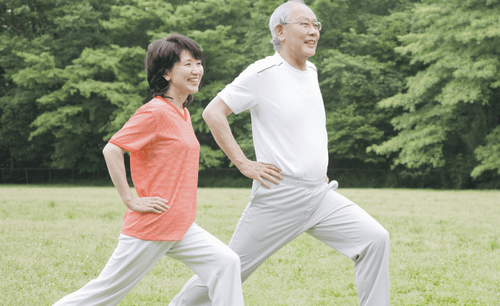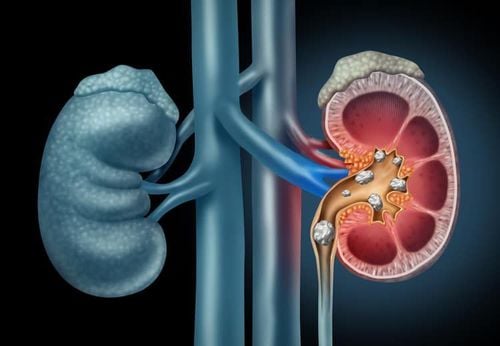Retirement is the beginning of a new phase in life, and there are many health issues to consider. Taking time to care for your body and doing useful things will help you feel healthier and happier.
1. Eat a healthy diet
Eating a balanced diet is an important part of staying healthy as you age. A healthy diet can help you maintain a healthy weight, stay energized, and get the nutrients you need, while also reducing your risk of developing chronic diseases, such as heart disease and diabetes.
Eat a healthy diet by focusing on nutrient-dense foods. Such as foods with vitamins, minerals and nutrients including vegetables, fruits, nuts, low-fat milk, lean meats, fatty fish, eggs, etc. Limit foods with little nutrition and high in calories such as foods high in processed sugar, saturated fat and trans fat, and salt such as processed foods, salty foods, fried foods, candy, ice cream, etc.
In addition, if your diet is not diverse, you can consider using some nutritional supplements to make your life after retirement healthier and more healthy. But you should ask your doctor or pharmacist about medicine before using it for the safest and most effective results.
2. Drink enough water
As you get older, you may not feel thirsty. But in fact, your body's water intake needs to be ensured to be sufficient. Pay attention to drinking water regularly or adding other forms of water to make it easier to drink. Try to drink 6 to 8 glasses of water a day to maintain a healthy body.
3. Exercise regularly
Exercise not only helps improve health, maintain a reasonable weight, strengthen muscles and organs in the body but also helps you live independently when you are old.
Choose an exercise that you feel is most suitable for you such as aerobics, walking, swimming or dancing, yoga, tai chi etc.
Depending on your health condition, choose a suitable sport and the appropriate intensity. Do not try to exercise too much when your health does not allow it, or gradually increase the intensity over time so that the body can adapt to the exercise.
To have time to exercise, you should use your time reasonably, stop watching TV and electronic devices to have more time to exercise.

4. Regularly get out of the house
An active lifestyle can help you feel happier, live longer, and reduce your risk of certain diseases, such as dementia. Travel with a group of friends, reconnect with friends from high school or college, and join clubs that are relevant to you to make your time more meaningful.
5. Try finding a partner
If you’re an animal lover, consider getting a dog or a cat. This can help you feel less lonely, happier, and healthier in retirement.
Just spending 15 minutes with your pet can lower your blood pressure, heart rate, and stress levels. Over time, a loyal companion can help lower cholesterol, fight depression, and keep you active.
6. Clean the surrounding environment
The living area has a direct impact on your health, so keeping the surrounding environment clean is very necessary.
You should clean up the garbage around the house, clean the house and clear the bushes to avoid mosquitoes. In addition, you should plant trees to make the living environment more fresh, as well as help you feel happier so that you can easily get used to retirement life with more free time.
7. Safety around the house
Home accidents become more dangerous as you age. To keep the environment around the house safer, you should buy non-slip mats for your bathroom and bathtub floors, fix damaged carpets or rugs, make sure there is plenty of light, tighten loose ropes, if your house has stairs, install handrails on both sides and stick anti-slip strips on the steps.
Elderly people are more vulnerable to injuries and are also more dangerous. So a safe environment is very necessary to avoid unnecessary risks.
8. Regular health check-ups
Regular health check-ups are a must to help you detect any medical conditions early and are a prerequisite for a healthier life in retirement. Your doctor can help you prevent cardiovascular disease, heart attack or stroke by monitoring your blood pressure and cholesterol levels. If you are a woman, you should be tested for breast and cervical cancer. If you are a man, you may need to be tested for prostate cancer.
In addition, infectious diseases are also the leading cause of death in the elderly, so timely vaccinations help protect you from the flu and other diseases.

9. Avoid driving
Over time, changes in your vision, physical strength and reflexes can affect your ability to drive. You may not be able to see road signs and pedestrians clearly, and you may not be agile enough to handle traffic-related problems. So you need to limit driving depending on your health and sit behind the wheel more to avoid risks when participating in traffic due to changes in old age.
10. Exercise your mind
Your brain needs exercise, just like your body. To exercise it, you can spend time-solving puzzles, playing musical instruments, learning to cook, creative painting, gardening, reading, and playing cards with friends is also a way to exercise your mind such as cooking or computers. In addition, you can join a course that you love but did not have enough time to join before.
11. Ensure your sleep
A good night's sleep is essential for a new day with more energy and also helps you avoid diseases such as depression, dementia and memory loss.
Some tips for better sleep include stopping drinking fluids 2 hours before bed, avoiding caffeine for 8 hours before bed, making your bedroom as dark as possible, limiting daytime naps to 10 or 20 minutes, and avoiding electronic devices before bed.
12. Pay attention to your sex life
Physical changes can cause sex to fade from your life. But you should spend more time with your bed partner, such as paying attention to emotions and obstacles to getting closer. Try to do intimate acts like holding hands, hugging and kissing again to feel closer, making it easier for you to have a better sex life.
13. Manage Your Time Well
One of the main joys of retirement is having time on your hands. You can do what you want, but to retire healthily, you need to manage your time well. Researchers have found that retirees are happiest when they have a plan for how they spend their time and make the most of it. If you manage it well, you can get a lot done even when you don’t have much free time, and it can help you avoid boredom.
14. Work after retirement
Working after retirement can keep your memory and brain sharp, not to mention help you earn extra income. Take up a career or a side hustle that’s healthy for you if it feels right.
15. Interact with family and friends regularly
When you can, eat with friends and family members. Social interaction can turn mealtime into an enjoyable experience, rather than a chore you want to skip. Regular social interaction can help you avoid loneliness and reduce your risk of many diseases.
- To stay healthy after retirement, try doing the above. An optimistic life will help you feel happier and ensure better health.
- Vip general health check-up package
- Special general health check-up package
- Standard general health check-up package
The patient's examination results will be returned to their home. After receiving the general health check-up results, if any diseases requiring specialized examination and treatment are detected, you can use services from other specialties right at the Hospital with outstanding treatment quality and customer service.
To arrange an appointment, please call HOTLINE or make your reservation directly HERE. You may also download the MyVinmec app to schedule appointments faster and manage your reservations more conveniently.
Reference source: medicalnewstoday.com









